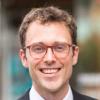Engineering Studies
Please set your timezone at https://www.chstm.org/user
Respectful Behavior Policy
Participants at Consortium activities will treat each other with respect and consideration to create a collegial, inclusive, and professional environment that is free from any form of discrimination, harassment, or retaliation.
Participants will avoid any inappropriate actions or statements based on individual characteristics such as age, race, religion, ethnicity, sexual orientation, gender identity, gender expression, marital status, nationality, political affiliation, ability status, educational background, or any other characteristic protected by law. Disruptive or harassing behavior of any kind will not be tolerated. Harassment includes but is not limited to inappropriate or intimidating behavior and language, unwelcome jokes or comments, unwanted touching or attention, offensive images, photography without permission, and stalking.
Participants may send reports or concerns about violations of this policy to conduct@chstm.org.
Upcoming Meetings
There are no currently scheduled upcoming events.
Past Meetings
-
February 18, 2022
Johannes Lenhard and Ann Johnson, "Systems Thinking and the Mainframe Culture of Prediction." Chapter five from their forthcoming book, Prediction as Practice and Culture.
Commentary from Davis Baird, professor of philosophy at Clark University.
Click the link below to download the book's table of contents, introduction, and fifth chapter.
-
January 21, 2022
“Engineering Studies in the Real World”
This session explores where, why, and with what impacts engineering studies is being practiced outside of the academy. We will hear from panelists who pursue history, philosophy, ethnography as engaged practices in the investigation of engineering failures, NASA decision-making, and issues of ethics and responsibility at the National Academy of Engineering. We especially encourage others practicing engineering studies beyond the academy to join us.
Panelists- Julie Mark Cohen, Independent Scholar
- Zachary Pirtle, NASA
- Courtney Hill, National Academy of Engineering
Moderator
- Marie Stettler Kleine, Colorado School of Mines
-
December 21, 2021
*Note Special Time*
Joint meeting with the History of Technology Working Group
Ryan Hearty, Johns Hopkins University
"Monitoring Water Quality in US Rivers in the 1950 and 1960s: information, communication, and applied sciences"
-
October 15, 2021
TBA
-
September 24, 2021
A discussion with Jessica M. Smith of her forthcoming book in the Engineering Studies Series of MIT Press, Extracting Accountability: Engineers and Corporate Social Responsibility (MIT Press, 2021). Comments from Rider Foley (University of Virginia) and Thomas De Pree (University of New Mexico and Southwestern Indian Polytechnic Institute).
Please read chapter 3 for the discussion (attached). Or, to download the entire book, click here.
-
June 18, 2021
No meeting this month. Have a happy and restful June!
-
May 21, 2021
“ABET’s Errant Evaluators and the Limits of Accreditation as a Mode of Governance in Engineering Education”
Atsushi Akera (Rensselaer), Sarah Appelhans (U Albany), Rafael Burgos-Mirabal (U Mass Amherst), Alan Cheville (Bucknell), Thomas DuPree (Univ. New Mexico), Soheil Fatehiboroujeni (Cornell), Jennifer Karlin (Minnesota State, Mankato), Donna Riley (Purdue)
Commentator: Julia Williams, Rose-Hulman Institute of Technology
-
April 15, 2021
*Note Special Time* Sangwoon Yoo, Assistant Professor, Hanbat National University, Korea, "Self-defining Waste: Cleanroom Operators and Maintainers in the Semiconductor Industry in South Korea in the 1980s-2000s." Commentator: Ross Bassett, Professor of History, North Carolina State University
-
March 19, 2021
Dean Chahim, PhD Candidate in Anthropology, Stanford University (United States): "'A Permanent Bloodletting': Engineering, Drainage, and the Sinking of Mexico City, 1947-1967."
Commentator: Vera S. Candiani, Associate Professor of History, Princeton University (United States).
-
February 19, 2021
First panel discussion, “Situating Engineering Studies within History of Science, Technology, and Medicine,” with:- Cyrus Mody, Professor in the History of Science, Technology, and Innovation, Maastricht University (Netherlands)
- Trisha Tschopp, PhD Candidate in History and Science Studies, University of California San Diego (United States)
- Heidi Voskuhl, Associate Professor and Graduate Chair, History and Sociology of Science, University of Pennsylvania (United States)
In the growing field of engineering studies, historians, anthropologists, sociologists, engineering educators, and other science and technology studies scholars center engineers and engineering as their subjects of analysis. This inaugural session of the Engineering Studies working group asks where such scholarship fits in the history of science, technology, and medicine. Via a panel discussion and community conversation we will explore the internationalization of engineering studies, its disciplinary boundary crossings, its emerging trends, and its future directions.
- « first
- ‹ previous
- 1
- 2
- 3
Group Conveners
-

Ryan Hearty
Ryan Hearty completed his MA in history of science and technology in 2019 at Johns Hopkins University, where he is pursuing his PhD and writing a dissertation on interdisciplinary collaboration and conflict among water quality experts in the United States between 1945 and 1980. As a former engineer, he has worked on the radio communications for NASA's Parker Solar Probe at the Johns Hopkins Applied Physics Laboratory and has a masterʼs degree in electrical engineering.
-

Ellan Spero
Ellan Spero is a historian of science and technology, educator and instructor at the Massachusetts Institute of Technology. She is an academic entrepreneur, serving as co-founder, chief curriculum officer, and lead instructor at Station1, a nonprofit higher education institution focused on a new inclusive and cross-disciplinary model of socially-directed science and technology education, research, and innovation. Dr. Spero’s research focuses on the ways that people envision human progress through the systems, institutions, objectives, and narratives that they create. As a historian working at the intersection of technology, business, and higher education, Dr. Spero’s research explores narratives of progress, systems of production, academic-industrial ecosystems, and interactions between humans and material infrastructures. Dr. Spero is a member of numerous international working groups and has presented at the Society for the History of Technology (SHOT), the Business History Conference, Society for the Social Studies of Science (4S), the European Economic History Association, and specialty conferences on World’s Expos, academic-entrepreneurship, and maintenance and innovation. Dr. Spero is a member of a research collaboration on railroads in historical context and “technological landscape” in the Tua Valley in Portugal. Most recently, she has received a fellowship from the Linda Hall Library, and has previously received fellowships from the Chemical Heritage Foundation (Science History Institute), and Hagley Museum and Library. She is currently a co-editor of special journal issue of ACS Biomaterials on bioinspired materials. At Station1, Dr. Spero has led the development of cross-disciplinary curriculum on socially-directed science and technology and is a co-lead on three grant-funded pedagogical initiatives which focus on social responsibility, inclusive innovation, and thoughtful development of science and technology. Spero was recently a visiting scientist at the Smart Living Lab at École polytechnique fédérale de Lausanne (EPFL) in Fribourg, Switzerland and prior a joint researcher between MIT and the Singapore University of Technology and Design (SUTD). Dr. Spero holds a Ph.D. from the Massachusetts Institute of Technology (MIT) in History, Anthropology, Science, Technology and Society. Spero also has a B.S. and M.S. from Cornell University in Fiber Science and Apparel Design, and a M.A from the Fashion Institute of Technology (FIT) in Museum Studies and Textile Conservation.